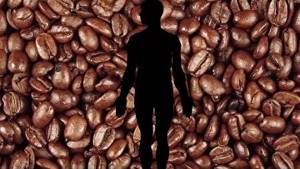Causes
Caffeine is one of the most popular psychoactive substances in the world and is present in many drinks and foods. Caffeine belongs to the methylxanthine class of stimulants that act on the central nervous system. He can:
- speed up metabolism
- increase urine production
- improve digestion
- increases heart rate
- relax smooth muscles
- increase physical performance
- Helps treat certain types of cancer
However, caffeine may cause or contribute to headaches. A study found that 50% of people experience a throbbing, widespread headache during caffeine withdrawal. This is because caffeine has a vasoconstrictor effect, meaning it constricts blood vessels and reduces blood flow. With regular consumption of caffeine, blood vessels become accustomed to constriction. Decreasing caffeine dilates blood vessels. This reaction is important because blood vessels dilate before certain types of headaches occur.
Caffeine also blocks adenosine receptors in the brain, which are pain modulators. Blocking these receptors could potentially reduce the spread of headache pain. People who consume caffeine regularly have more of these adenosine receptors, making them prone to developing headaches when they stop consuming caffeine.
Less headaches
Many people report that they have fewer headaches when they give up coffee, and Olivia is no exception.
“I often have pressing headaches in the front of my head, which seems to be related to dehydration,” she said. — Since I stopped consuming caffeine, I have found that I feel better. I replaced this drink with herbal teas and now I am much less dehydrated.”
80 minutes when Epiphany water has maximum strength: you need to have time to collect it
Vegetable salad with colorful pasta: budget-friendly, satisfying and simply beautiful
How in the old days our great-grandmothers went to bed on Epiphany and the next morning they knew the future
Again, if you want to continue drinking coffee but also get rid of headaches, it is recommended to consume two glasses of water for every cup of coffee.
Treatment
The fastest and easiest way to relieve caffeine withdrawal headaches is to consume caffeine. However, people trying to reduce their caffeine intake can use other remedies to reduce headaches.
Taking painkillers
Ibuprofen, aspirin, and acetaminophen contain compounds that block pain signals and relieve headaches. However, taking pain medications more than two to three times a week can lead to a headache known as drug overuse headache
.
Drink more water
Dehydration can trigger pain receptors in the skull. Sometimes even minor dehydration can lead to severe headaches.
Ice
Ice constricts blood vessels and slows the transmission of nerve signals. In one study, researchers showed that applying ice to the neck reduced pain in participants who were experiencing migraines.
Topical application of menthol
Menthol can numb the skin and reduce pain. Rubbing a few drops of diluted peppermint essential oil onto the forehead or temples can relieve headaches.
Dream
Sleep disorders are associated with many types of headaches, meaning there is a connection between sleep and headaches. Adequate and high-quality sleep usually reduces headaches. However, if you sleep too much or take sleeping pills too often, your headaches may get worse.
Acupuncture
Researchers don't know how acupuncture relieves headaches, but it may slow down pain signals and activate brain pathways that can shut them down.
Acupressure
Acupressure is a technique based on the traditional Chinese medical therapy of acupuncture. It involves manipulating a specific pressure source, which can reduce headaches by improving circulation and reducing muscle tension.
Nutritional supplements
Researchers have studied many different dietary supplements as potential treatments or prevention for headaches. They found several potentially beneficial effects:
- coenzyme Q10
- riboflavin (vitamin B2)
- magnesium
- pyrethrum
Most supplements only work when taken regularly over time.
What are the benefits of quitting coffee?
- Reduce Anxiety: Caffeine provides an energy boost, which is what most of us use it for. However, this energy also stimulates our “fight or flight” hormones. This can cause increased anxiety, nervousness, increased heart rate, and even panic attacks.
- Better Sleep: Research shows that drinking coffee daily can alter your sleep cycle, causing restless sleep and daytime sleepiness. This may be especially true if you consume caffeine less than six hours before falling asleep.
- Better Absorption of Nutrients: If you don't consume caffeine, your body can absorb some nutrients better. The tannins in caffeine can interfere with the absorption of calcium, iron, and B vitamins.
- Whiter teeth: Coffee stains teeth. As a result of giving it up, your smile will become dazzling.
- Balanced Hormones: Women can especially benefit from cutting out caffeine. Caffeinated drinks such as coffee, tea, and soda can change estrogen levels.
- Lower Blood Pressure: Quitting caffeine may be beneficial for your blood pressure. Caffeine increases blood pressure levels due to the stimulating effect it has on the nervous system.
- Balanced Brain Chemistry: Caffeine can change brain chemistry in the same way that drugs do, and researchers agree that caffeine does meet some of the criteria used to measure addiction. People who do not consume caffeine will not be exposed to its addictive properties.
- Fewer headaches: Quitting caffeine is not an easy process. One of the most common and unpleasant side effects of its withdrawal is headache. But once you get over it, you will notice that you have fewer headaches.
- Healthy Digestion: Caffeine consumption can be associated with a variety of digestive problems. Coffee creates a laxative effect, which stimulates the intestines. Consuming particularly large amounts may cause diarrhea or loose stools.
- Delayed Aging: If you are concerned about aging, you may benefit from quitting caffeine. Caffeine interferes with the formation of collagen, reducing its synthesis in the skin.
"While it wasn't the secret to completely eliminating my anxiety, cutting out caffeine certainly helped reduce the negative effects on my mind and body," Olivia said.
Grated pie with jam: how to prepare your favorite childhood dessert
I serve a budget-friendly, and most importantly healthy, side dish to the table: I take carrots and onions
Rocket upper stage designed to clear Earth's orbit has been tested
If you feel anxious after drinking too much coffee, it may mean that it is having a bad effect on you and is lingering in your system longer than you expect.
Other caffeine withdrawal symptoms
People who reduce their caffeine intake may also experience:
- anxiety
- irritability
- problems concentrating
- trembling or trembling of the hands
- fatigue and drowsiness
- depressed mood
- increased heart rate
- nausea and vomiting
- high or low blood pressure
- skin hyperemia
- constipation
- flu-like symptoms
- joint and abdominal pain
- muscle stiffness
The severity and number of symptoms a person experiences during caffeine withdrawal depend on how much they typically consume and how quickly they reduce their caffeine intake.
Even people who drink only one small cup of coffee daily for 3 days may experience withdrawal symptoms if they suddenly stop drinking coffee.
According to one study, most people experience withdrawal symptoms within 12-24 hours when cutting back on caffeine intake and experience the most severe symptoms within about 20-51 hours. Caffeine withdrawal symptoms can last from 2-9 days.
People often describe caffeine withdrawal headaches as a widespread, throbbing headache.
Researchers define caffeine withdrawal headache as a headache that:
- develops within 24 hours of the last caffeine use in people who consume at least 200 milligrams (mg) of caffeine per day for more than 2 weeks
- pain goes away within 7 days after stopping caffeine
- the condition improves within 1 hour after drinking 100 mg of caffeine
First of all, no one is saying that you have to stop drinking coffee. Your habit of starting the day with a cup of your favorite drink is probably doing more good than you think. But if you suspect you're drinking too much coffee or caffeine and want to curb your appetite, here's what might happen.

BuzzFeed 08/15/2016
You can lose weight
Your typical Starbucks order is probably adding size to your waistline; giving up coffee can save not only money, but also calories consumed. Research from Duke University researchers shows that daily consumption of caffeine in the form of coffee, tea or soft drinks increases daily sugar levels by nearly 10 percent, increasing the risk of heart disease and obesity. Even if you avoid extra sugars and fats and simply add cream and sugar to your coffee, one such serving can cost as much as 200 calories.
You may gain weight
Did you have a terrible appetite when one day you had to give up your dose of caffeine? Because coffee can temporarily suppress your appetite, you may find yourself reaching for something fatty or sweet more often than usual once you stop drinking your daily cup of the bitter drink. When you quit coffee, your body begins to look for other sources of fast sugar, increasing your blood glucose levels and daily calorie intake.
You could get better sleep
While you may feel tired as you adjust to life without coffee, you'll eventually get better sleep, especially if you're used to drinking coffee during the day or evening. A study published in the Journal of Clinical Sleep Medicine found that consuming caffeine even six hours before bed can disrupt your body cycle.
You may get headaches more often

BBC 01/31/2016 BBC 08/27/2015 BBC 06/12/2015 Atlantico 11/23/2014 Every coffee lover is familiar with the first signs of a severe headache that hits you when the body does not receive the required dose of caffeine. By stopping drinking coffee, you are depriving your body of adrenaline and dopamine, hormones that act as natural stimulants and keep you alert. Instead, adenosine, a hormone responsible for rest and fatigue, enters the brain, leading to headaches. To minimize discomfort, don't suddenly stop drinking coffee, says Wesley Delbridge, a spokesman for the Academy of Nutrition and Dietetics. Instead, limit yourself to one cup every two to three days. Replacing coffee with tea or even mixing regular coffee with decaffeinated coffee can help you avoid withdrawal symptoms.
Your health will worsen (but not for long)
Headaches aren't the only painful symptom of caffeine withdrawal. Those who stop drinking coffee report side effects such as depression, anxiety, dizziness, flu-like symptoms, insomnia, irritability, mood swings and sluggishness. But there is good news: all this will pass quickly. Experts say that most physical symptoms of caffeine withdrawal will disappear after two days, and other side effects will not bother you for more than a week or two.
You will have healthy teeth
Coffee contains acid, and therefore it destroys tooth enamel and stains your teeth with every sip. By giving up caffeine, you will protect your teeth and give yourself a snow-white smile.
InoSMI materials contain assessments exclusively of foreign media and do not reflect the position of the InoSMI editorial staff.











